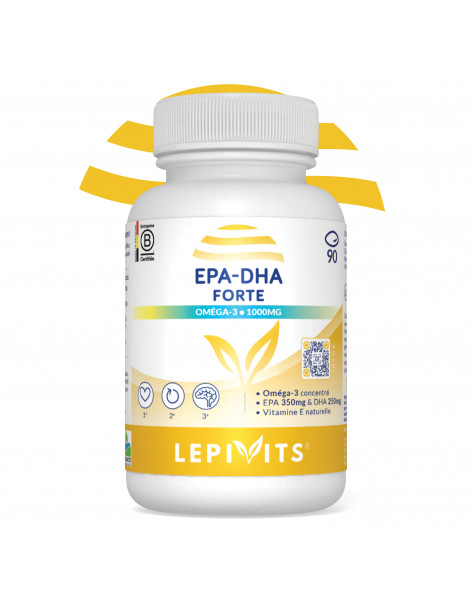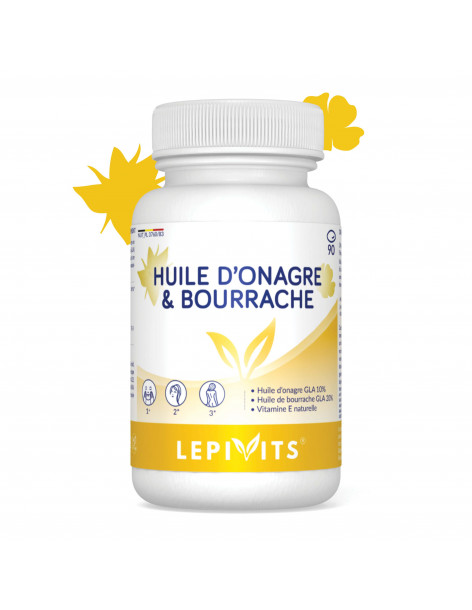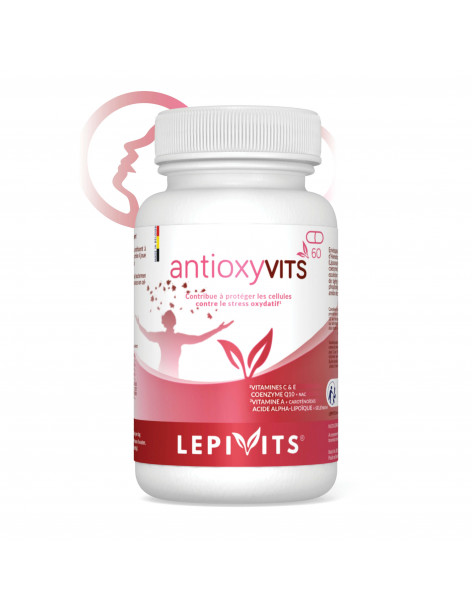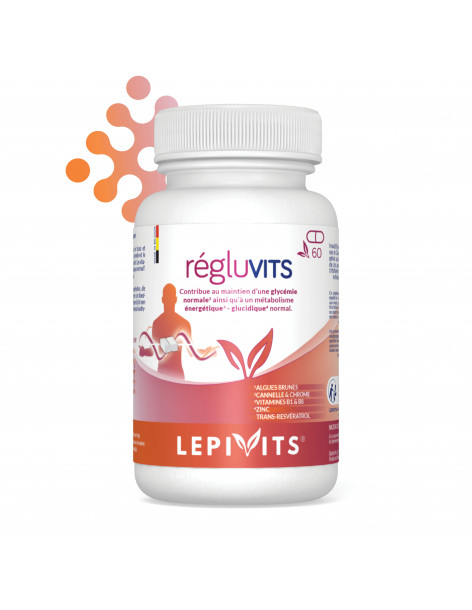Do you eat too much fat or salt and have high cholesterol?
Cholesterol is the most abundant fatty substance in the animal kingdom. It is present in all cells and is used for the synthesis of steroid hormones and bile salts. This substance is not soluble in the blood and will act with the help of transporters; high density lipoproteins (HDL) and low density lipoproteins (LDL).


In stock
Support your Heart and Brain
Short of omega-3? These fish oil capsules, titrated in EPA and DHA, are certified free of heavy metals and protected from oxidation by a natural complex containing vitamin E.


In stock
Moisturized skin and enhanced feminine well-being
Damaged, dehydrated skin, skin ageing? This synergy of evening primrose and borage oils from first pressing is rich in natural fatty acids including gamma-linolenic acid (27.5%). Borage oil promotes the rejuvenation of the skin from within, has an effect on dry skin and supports the elasticity of the...


In stock
Your Natural Complement Against Oxidative Stress
Take care of your cells! Antioxyvits is a food supplement containing a synergy of minerals, carotenoids, alpha-lipoic acid, coenzyme Q10 and vitamins A, C and E.


In stock
Balance Your Blood Sugar Naturally
Blood sugar problems? Regluppin is a dietary supplement containing a synergy of vitamins and minerals, amino acids including carnosine and carnitine, combined with phytonutrients including trans-resveratrol extract (Veri-te®).
Is HDL cholesterol good for you?
High-density cholesterol will clean the arteries and is called "good" cholesterol, whereas LDL cholesterol is deposited on the artery walls and promotes atheroma (fatty plaques).
These plaques can lead to cardiovascular problems such as high blood pressure.








